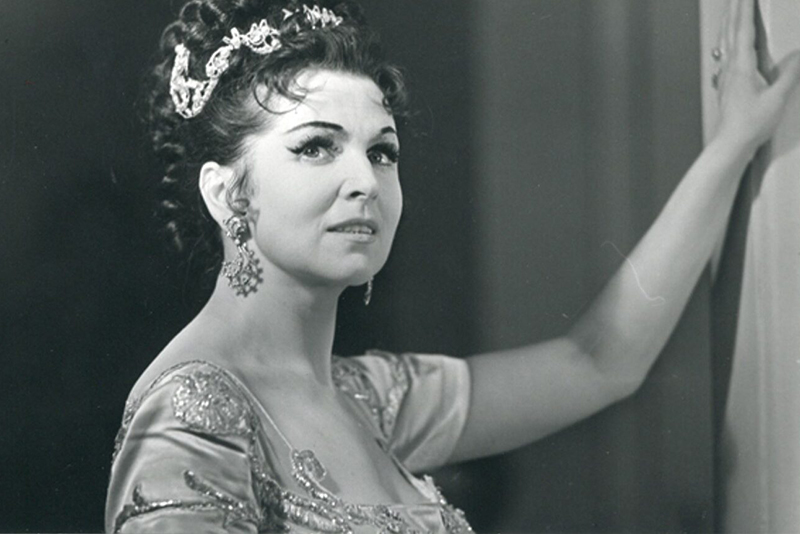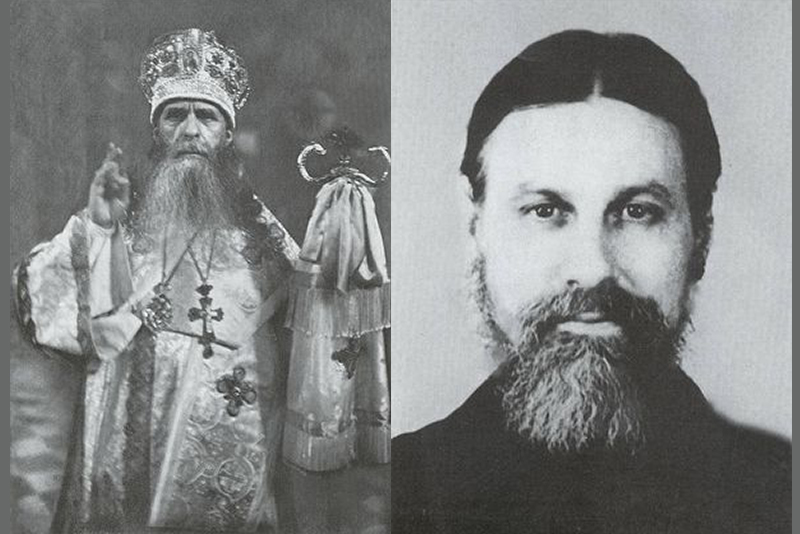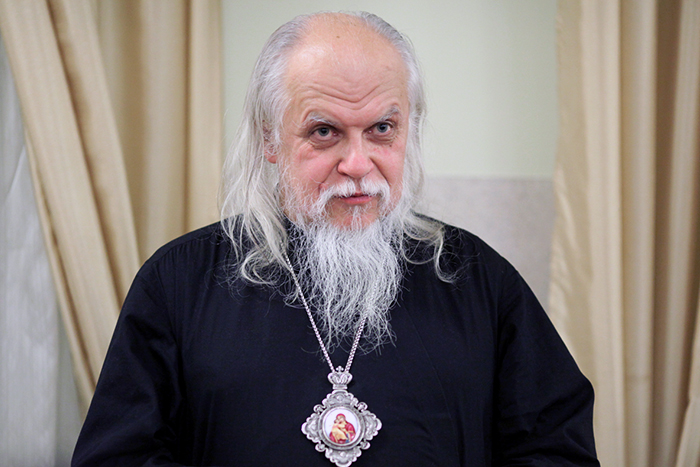
On the night of October 22-23, the abbot of Dochariou Monastery of holy Mount Athos, Archimandrite Gregory (Zumis), a close relative of the famous Athonite elder Joseph the Hesychast, reposed. He received the monastic tonsure from Elder Amphilochios of Patmos, a famous ascetic of piety. Having arrived there, he revived Dochariou Monastery, where he was elected abbot. In his last years, he endured suffering from a severe, incurable disease without complaint. Speaking of himself, the Elder would humbly ask prayers for the “robber Gregory.”
Maxim Klimenko, an historian, screenwriter, translator from Greek, and Orthodox publicist, personally knew Elder Gregory, visiting him on Mt. Athos many times over the course of thirty years.
By the great mercy of God, I was fortunate enough to know Elder Gregory from Dochariou Monastery for nearly thirty years. Communication with him left a lasting impression on all: on those who were close to Dochariou Monastery and could rightly consider themselves spiritual children of the newly-reposed Elder Gregory, and on those who met him at least once. I saw this many times.
I first saw Elder Gregory in 1989 or 1990 as I was approaching Dochariou Monastery. I was a subdeacon then, and I had a blessing to wear a cassock, and, of course, I had a relatively new and tidy one. Suddenly I saw a man in rather shabby form: His entire riassa consisted of patches (I’m not exaggerating), and on top of it, you could say he was wearing rags and a black apron, also completely tattered. This man of strange appearance was very busy: He was polishing a bronze candle stand with a special tool.
On Mt. Athos, all the monasteries try to polish the Church utensils to shining before the Great Feasts, so the church would meet the feast, especially if it’s the patronal feast, in all its splendor. The glare from the fire of the candles and lampadas plays especially beautifully on these polished surfaces. But, as a rule, this heavy and exhausting work of making them shine is done by the novices and younger brothers, of which Dochariou Monastery has never been in shortage under Abbot Gregory…
“Bless,” I said, addressing the laboring monk (on Mt. Athos, they ask a blessing from all the monks, not just the priests).
“God bless you,” he said, not looking up from his work.
“I would like, if it’s possible, to see the abbot,” I said.
“And why do you need the abbot?” he asked, continuing to work fervently.
I explained that I had a letter of recommendation from Moscow to give him, and so on.
“And who might you be?” he asked me, starting a conversation that was more like an interrogation…
And when he had learned everything that interested him, then, still not putting down his work, he suddenly baffled me: “Well, I’m the abbot. Come on, get up and help me.”
We all remember the life of St. Sergius, and we remember something similar from the examples of the ancient patericons. But here it wasn’t the same. Everything was somehow very everyday, ordinary, natural. Not staged, not theatrical. That’s how I saw the Elder the first time.
Of course, everyone noticed his simplicity and accessibility, but for all of that, he was no simpleton! That’s the thing of it. As we know, he graduated brilliantly from the theological department of Athens University. He studied throughout his entire life afterwards, and communicated with and became close friends with people who were the color and pride of Orthodox theology not just in Greece, but in the entire Orthodox world. Highly-learned people with many degrees and regalia would visit him from afar, and they all found interesting conversation with him. He wasn’t some uneducated “peasant in a cassock.” No.

One day we were talking and the conversation turned to the interpretation of some question from the ancient philosophers Plato, Eutychus, and Aristotle… And suddenly the Elder began to illuminate this topic so encyclopedically, broadly and deeply from the point of view of the mystical experience of the Church and Orthodox spirituality, that everyone participating in the conversation was simply amazed by his reflection. You could be a dogmatician, or you could comprehend the entire corpus of knowledge—and, of course, he still amazed those who were attuned to see just a “simpleton-fool” in this old monk. In fact, he came from a large, poor family, but internally he acquired a lot. Elder Gregory was quite authoritative among the Athonite abbots. Not every abbot on Athos has such weight. And it’s not just about any “table of ranks.”
I’ll tell you a story that happened with me personally. I call it a miracle because I have no other explanation for what happened. Some time ago, knowing that I regularly go to Holy Mount Athos, Vladyka Jonah (Cherepanov), the abbot of St. Jonas Monastery in Kiev, not yet a bishop then but an archimandrite, called me and said, “If you’re going to Athos soon and you don’t have very many things, then could you take a small package for Fr. Gregory in Dochariou Monastery?”
“What is it?”
“Just some stuff,” he answered. “The Elder ordered something, we fulfilled his order, but we have to get it to him immediately because they’re having a big feast soon, and it’s for the feast… We have to hurry. We’re looking for a way to get it to Athos as soon as possible.”
As soon as I agreed, I was immediately met by a young man (I later learned he is a very talented jeweler, a master of gold work). Then he gave me some packet, not explaining anything. When I got home I unwrapped it, and I was horrified! There, in a special coffer, was a set of liturgical vessels. But not just liturgical vessels—it was a rather large-sized exact copy of the Byzantine chalice and discos that we have in our armory! They were made of silver with gold leaf and decorated with precious and semi-precious stones! I already knew that to export such things you have to gather a huge packet of documents at the Ministry of Culture, and so on. It wasn’t just a silver or gold cross you wear on your neck and pass through customs… I was in shock. I didn’t know what to do! I was supposed to fly the next day. I had my tickets in hand. My bags were packed. Mentally going over the most unpleasant situation I could find myself in, I dialed the number for Dochariou Monastery. Elder Gregory himself picked up the phone. Tangling my words, I tried to explain what awaited me… And suddenly he authoritatively and abruptly interrupted me:
“What are you talking about?! This is complete nonsense! Absurd! We have a feast coming. The feast of the Mother of God. The Mother of God is waiting for these vessels. The Mother of God is waiting for them for the feast. Don’t be afraid—take them and bring them!”

My friends advised me: “Listen, do you have some completely unsightly, old bag or old suitcase?”
I found some cloth suitcase with a zipper from my childhood, with which earlier, in the distant Soviet past, children would go to the Pioneers’ camps. Thank God, the coffer fit there as if it had been made for it. But still, to be honest, I went to the airport not without some trepidation. “The elder blessed, I have to take it,” was all I could repeat to myself to calm myself. And what happened?
Somehow, miraculously, the customs officials in Moscow didn’t see anything. The same thing happened in Greece. I put my suitcase on the belt, and it was like someone closed their eyes to them at that moment. I realize it was something incredible that happened only by the Elder’s prayers. I flew to Dochariou as if on wings. I gave the package to Elder Gregory. He immediately took me into the altar and showed me the church that was already ready for the feast day Liturgy, and, placing these necessary liturgical vessels on the altar, he said
contentedly, “The final touch! We made it!”
contentedly, “The final touch! We made it!”
And turning to me, he said, “For your courage, for your boldness, that you obeyed my blessing, you’ll be recorded in the eternal commemorations in our monastery! We will remember you every day when we serve Liturgy.”
A greater joy can’t even be imagined! And then, as if to bring me down from Heaven to Earth, the elder clarified one point in his characteristic playful manner: “Only, please, when you die, don’t forget to tell us so we can commemorate you with the reposed!”
This whole story quite precisely characterizes the Elder.
Fr. Gregory was already very sick in recent times: diabetes, insulin dependence… And not long ago we learned with horror that during reconstruction, the elder suddenly found himself alone and fell into a construction pit. He survived only by some miracle, having received, of course, fractures and bruises. We thought the elder, at such an advanced age, with a whole bouquet of serious diseases, would not survive. But the Lord revealed a miracle and returned the Elder to us for some time.
The Elder was in an incredible rush to finish all the work on the beautification of the monastery. People who have been to Dochariou were amazed at the speed with which the wondrous changes were taking place:
“How?! How could the monastery rise from the ruins and be so transformed in such a short time?!” even the most restrained gentlemen would exclaim.
Besides the monastery itself, the Elder took care for the beautification of the monastery territory, building there some free-standing kathismas and hesychasterions, as they’re called on Mt. Athos—cells where monks can prayerfully retire for some time. When asked: “Why’d you do that? We don’t have so many brothers, and the monastery is huge… Who’d you build all of this for?” the Elder would answer in his characteristic way, with a cunning squint: “You don’t know yet that I will die soon, and Athos will fill up with monks. There will come a time when there won’t be enough monasteries to accept everyone who wants to labor here.” Apparently, something was revealed to him. I would still like to at least hit upon the main thing that I believe is necessary to say. Many remember now the Elder’s sacrificial love, his fiery faith, and so on. I would like to especially emphasize his quality that struck me the most. By his life he embodied the words of the Apostle Paul from his Epistle to the Corinthians: I will destroy the wisdom of the wise, and will bring to nothing the understanding of the prudent. Where is the wise? where is the scribe? where is the disputer of this world? hath not God made foolish the wisdom of this world? (1 Cor. 1:19-20). The Elder was a Fool-for-Christ. Everyone who knew him or at least spoke with him can testify to it. But it was not an ostentatious “foolishness,” as some clergy or monks love to play the part of an elder, of some fool, to add a certain “spiritual” flare to themselves. No, it was foolishness, as they say, speaking impartially. This foolishness is akin to the foolishness of preaching (1 Cor. 1:21) of the ancient saints, who directly denounced those in power, and, regardless of rank, could give them quite a dressing-down. Such nearly patericon-like sessions of shock therapy in Dochariou were practiced constantly by its abbot. They were very sudden turns of spiritual experience for those who just a few minutes ago had been complacently contemplating this kind, smiling, grandfather, wandering, seemingly with embracing arms reaching for them, and even affectionate and courteous with animals along the way… And then, BAM! The cancerous tumor is cut out of your, as you thought, beautiful soul as with a scalpel without anesthesia. I saw this virtuosic operation many times!
To not go unsubstantiated, I will tell you a couple of stories. They are far from being the most eccentric healings (some of them I don’t dare make public). One time I took a really close friend with me to Mt. Athos. Before that he’d already visited, as secular people say, the “centers of spiritual power”: in Tibet, in some ashram in India, and so on. “So why not add Athos to our piggy bank…” is probably how he reasoned about it, but here the story begins…

Incidentally, he didn’t immediately agree to go to Holy Mount Athos, having guessed that you don’t return from there as you were when you went… I took him to Elder Gregory. And I’ll tell you, my friend smoked almost from adolescence, and a lot, and rather strong and expensive cigarettes. I knew it, and I also knew that Elder Gregory was a relentless fighter against this passion—tobacco smoking—but what happened, having introduced them, I couldn’t even imagine… Suddenly I saw the Elder was already taking a solid step towards my friend…
“Do you have any cigarettes?” he asked him.
He immediately obediently pulled an already started pack of cigarettes from his pocket and handed it to the curious Elder. Dochariou pilgrims know how many packs are left right there in the church, at the She Who is Quick to Hear Icon of the Mother of God, by those who have been healed from this addiction. “And here,” I thought, “the Elder has added to his collection,” but I hadn’t even managed to formulate this thought to the end when I suddenly heard the sound of a hearty slap!
“That’s it, you won’t have any more cigarettes,” declared the Elder to him whom he so unexpectedly “thanked” for the already-opened pack.
“Crazy grandpa,” he said, inwardly smirking, with a carton of elegant cigarettes still in his self-indulgent, luxurious suitcase… Finding himself with them again in private, he took out a cigarette, tried to smoke it, and couldn’t understand what was happening: His head was spinning and he started to feel some bad nausea. He tossed the cigarette and took another—the same thing happened! He persisted, and he threw up! He didn’t even try to smoke anymore, although before that he had been a chain smoker for more than thirty years!
Yes, the Elder was harsh, but it was the necessary measure of an experienced doctor who sees all the perniciousness consuming the sick person and understands there is no other way to act. The Elder wasn’t hard-hitting just in relation to visitors. Once the famous Vatopedi Monastery did something unheard of for Holy Mount Athos—they set up something like a checkpoint halfway to the monastery. It was a gate with guards who checked for a reservation, that is, permission to visit Vatopedi in particular (despite the fact that they were still issuing general admission to enter all the monasteries then). It is clear that Vatopedi took this measure out of necessity, wanting to somehow regulate the flow of visitors, so everyone had a place to stay and would be fed… But no Athonite monastery has ever permitted anything like this… So when Elder Gregory heard about it, he ironically asked, “So they set up a gate? Aha… And they set up a cash register too, right? What, do they give out receipts, too?”
Greater derision, in the context of the whole Athonite tradition and the opposition of Athonites to the imposed European Union norms, cannot be imagined.
Thus, by one biting phrase, he gave to understand that it’s not always necessary to implement on Athos what has been adopted in the “progressive,” servile world. It can serve as a temptation, which, in fact, did happen. In the end, Vatopedi itself was not happy with its innovation. The voice of the Elder is a voice of reproof given to our age, by which the chosen prophets used to knock the filth from society as with a whip.
Elder Gregory had the gift of clairvoyance. There were things he had mysteriously foretold. I have no doubt about that. All of us who knew the Elder and consider ourselves his admirers mourn his passing in a human way, but at the same time we know that the Lord in Heaven has revealed a new intercessor, a mediator for us all.
Let us, especially in these days when his soul is still bidding farewell to the world, pray for the newly-reposed Schema-Archimandrite Gregory.




